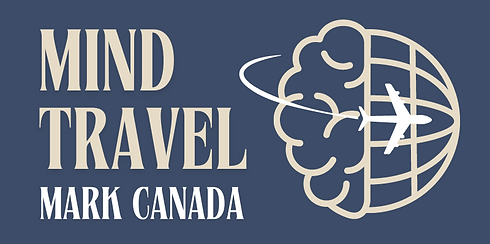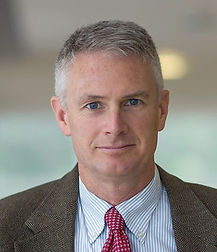Mark Canada, Ph.D.

Issue #13
September 7, 2024
-
More from Mark:
.png)
English has hundreds of thousands of words. Why do we keep creating new ones? It's all I can do to keep up now!
There are multiple answers to this question, enough to fill multiple columns and bring me more delight that you can possibly imagine. For now, I will focus on just one reason.
Often, a speaker invents, or "coins," a new word to fill what's called a "lexical gap." The phrase means exactly what you probably would assume. Someone encounters a thing, a phenomenon, etc. and realizes there is no word for it. It's hard to talk or write about something if you have no word for it. (Case in point: does anyone else remember what happened when the musician Prince changed his name to a symbol? Not knowing how to pronounce the symbol, journalists started calling him "the musician formerly known as Prince.")
Often the thing itself is new, as in the case of a new invention. Before Alexander Graham Bell invented the telephone, we didn't have a word for this invention because we didn't need one. The thing didn't exist. Once he did invent it, though, we needed a word for it. The result was a word built on Ancient Greek roots: tele- (meaning "far off") and -phone (meaning "voice, speech"). This new word filled an obvious lexical gap.
In other cases, someone becomes aware of something old without a name. This is how I would characterize the coinage of ASMR. This phenomenon, which I described last time with a definition from Merriam-Webster (that is, a kind of "a pleasant tingling sensation . . ."), has existed probably as long as there have been humans. Nonetheless, more than a thousand years have passed, and no English speakers coined a word that caught on and became a widely accepted term for it. Notice how I qualified my explanation in that last sentence: "that caught on and became a widely accepted term for it." I would be willing to bet that many people over the course of the history of English (stretching back to the fifth century) did come up with words for this sensation, but these words never became widely used and thus easily recognizable.
The Internet probably helped ASMR catch on because now a coinage can get widespread exposure in a matter of minutes instead of months. In this case, YouTubers such as "Matty Tingles" have begun creating videos designed to arouse the sensation in viewers. That kind of internet exposure helps the word spread a lot faster than, say, cave paintings.
ASMR is an example of a kind of word known as an initialism--that is, it is made up of the first letters of other words, in this case autonomous sensory meridian response. You can see why initialisms come in handy. Imagine a conversation like this one:
"What's your favorite way to get an autonomous sensory meridian response?"
"What's an autonomous sensory meridian response?"
"I can't believe you haven't heard of an autonomous sensory meridian response!"
You get the idea. If we didn't have the much shorter ASMR, we wouldn't even want to talk about this thing.
Initialisms are pronounced as individual letters, as in the case of not only ASMR, but also MRI, DNA, and that sensation of the '70s, the CB, as in the CB radio. (I wouldn't be surprised if some people got an ASMR from listening to a CB, especially if they got themselves a convoy. 10-4!)
Acronyms are even handier than initialisms if you ask me because they are sounded out as words, so they roll off the tongue more easily. For example, scuba comes from "self-contained underwater breathing apparatus." Radar comes from "radio detecting and ranging." In this case, that first a, although not an initial letter, is part of the acronym, since we need a vowel to pronounce it as a word. Another well-known acronym is snafu, which means . . . well, I'll let you look that one up.
There are lots of other ways to create new words to fill lexical gaps. Another is something called blending, which involves combining parts of other words. Blending parts of the words breakfast and lunch, for example, gives us brunch. We will come back to initialisms, acronyms, blends, and the many other kinds of words that English speakers coin in a future column. For now, what is important that speakers can fill lexical gaps in a variety of ways.
Here I would like to make a distinction between different situations that give rise to new words. So far we have been looking at one I would characterize as deliberate. Someone, seeking to fill a lexical gap, crafted autonomous sensory meridian response, and someone--perhaps the same person or someone else--turned that mouthful into an initialism: ASMR. In both cases, there was some significant thought involved.
Similarly, writers sometimes put their linguistic creativity to work to craft new words. In his novel 1984, George Orwell gave us several new words, including a few that developed some currency and wound up in dictionaries. Orwell's newspeak, for example, means "propagandistic language marked by euphemism, circumlocution, and the inversion of customary meanings," according to Merriam-Webster's online dictionary. The same dictionary defines doublethink, another word that Orwell used in 1984, as "simultaneous belief in two contradictory ideas." Both of these words are compounds, meaning they consist of more than one word joined to create a new word. The most famous word to come out of 1984 is another compound, Big Brother, which Merriam-Webster defines as "the leader of an authoritarian state or movement" or "an all-powerful government or organization monitoring and directing people's actions." Orwell was not the first person to put "Big" and "Brother" together to mean something other than simply an older brother. Big Brother, meaning someone who acts as a role model for someone younger, had been around for more than a hundred years when Orwell adapted it for his own use. Orwell's novel was so influential that his name itself gave rise to a new word in English: Orwellian, a word we use to refer to something related to a totalitarian government or otherwise characteristic of the dystopia that Orwell depicted in 1984.
This last word demonstrates yet another method that speakers use to coin new words. When we add the affix -ian to a noun, we create an adjective. This process is called affixation. Remember that term. We will return to it next time when we explore words that arise spontaneously, without the kind of deliberation that Orwell and others have put into their creations. In the meantime, I encourage you to follow Orwell's example and try to create something so brilliant, so profound, so influential that people start adding -ian to your name. Hey, it worked for me!
About Mark

A longtime English professor, scholar, and author, Mark Canada, Ph.D., writes and lectures on a variety of authors and subjects in the fields of literature, language, history, and leadership.
More from Mark
My scheduler and I are booking lectures for the summer and fall. Please send an email to mark.canada@icloud.com to pitch some possible dates for your group. Here are a few topics I can cover:
-
"The Literature of the Sea"
-
"The Literary Mediterranean"
-
"Puzzling Poe"
-
"Frederick Douglass: Author, Abolitionist, Activist"
-
"Franklin in France: Diplomat, Celebrity, and Flirt"
-
"Benjamin Franklin: Scientist, Diplomat, Author--and Role Model?"
To book Mark for a speaking engagement, click on the "Contact Mark" link below and send a message with dates and requested topics.